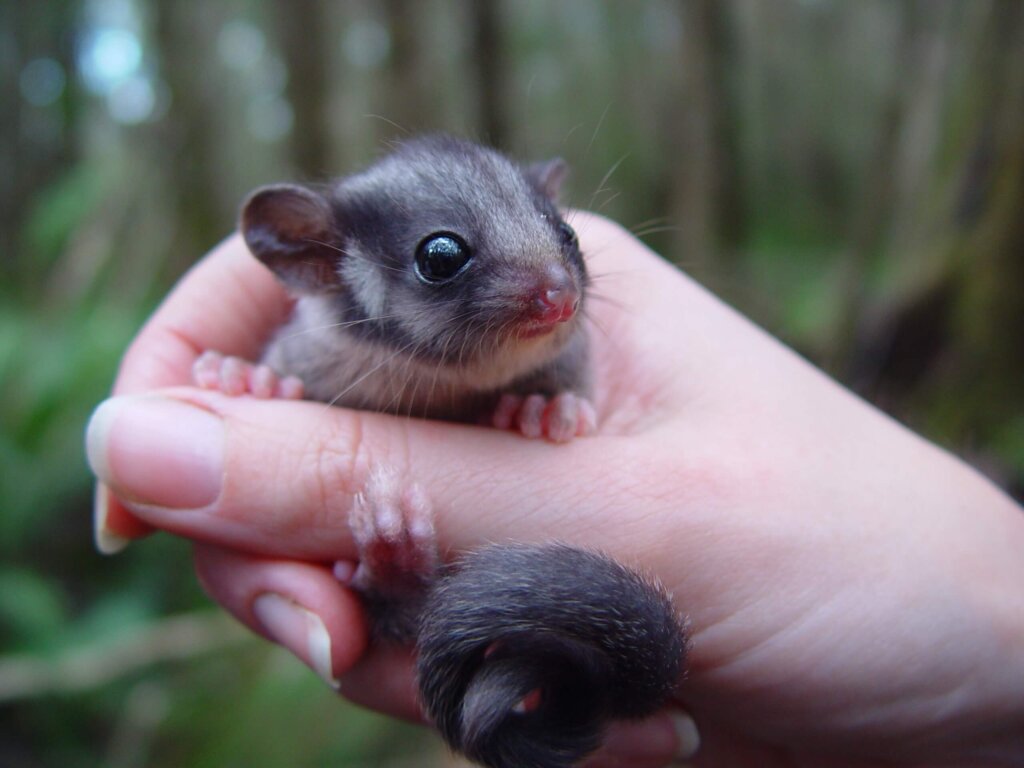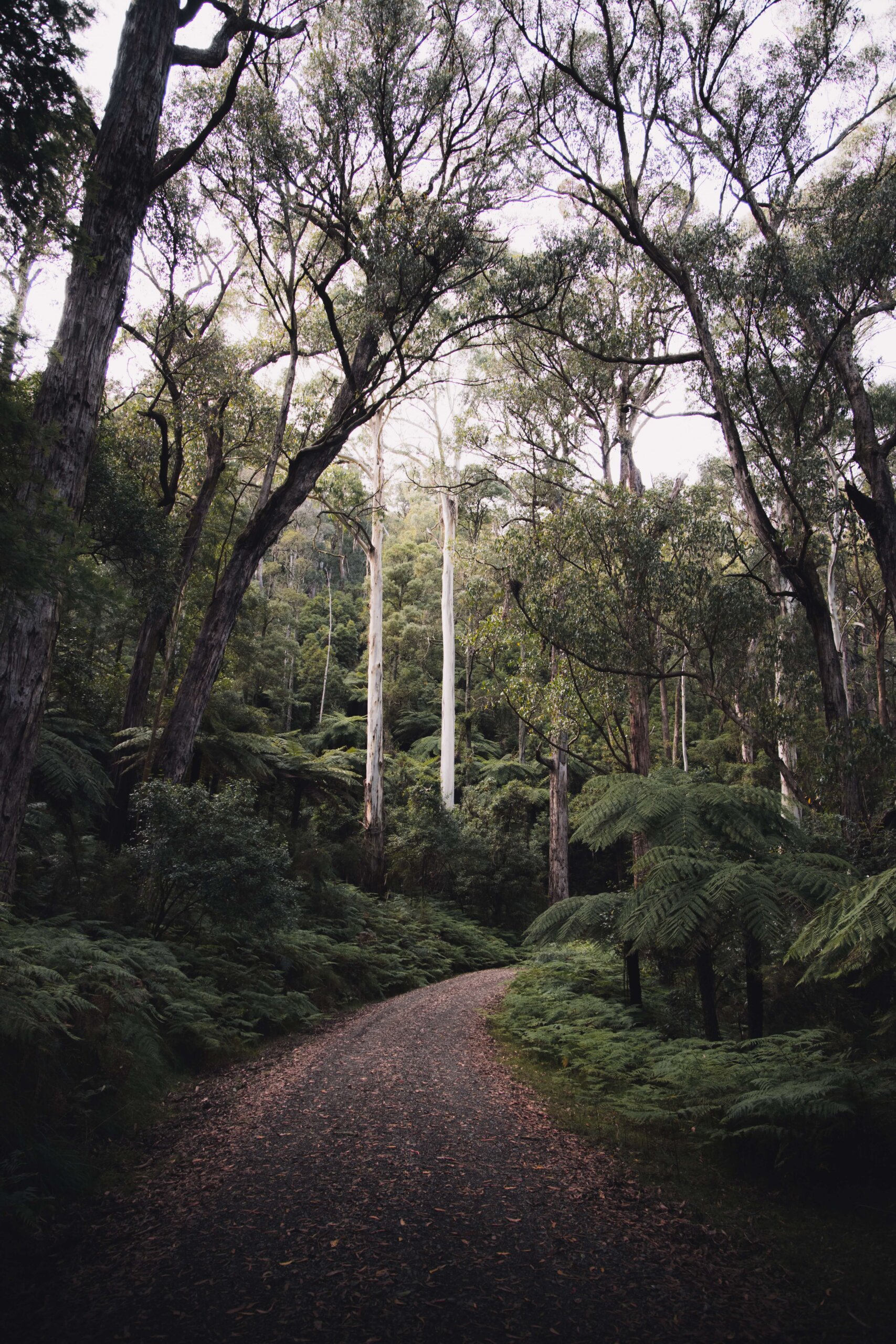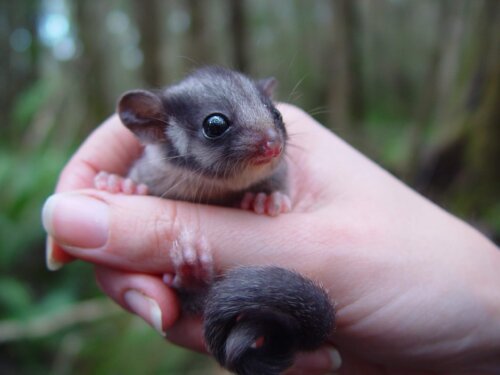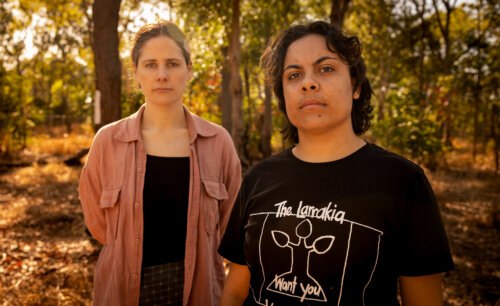It’s one year since the Andrews Government announced that native forest logging would end in Victoria, six years earlier than planned.
The decision was celebrated by community groups, citizen scientists, Traditional Owners and environmental lawyers after decades of campaigning and legal battles to hold the industry to account, stop the destruction of Country and end extinctions of native plants and animals.
The government's announcement included a bold and welcome promise to deliver the largest expansion of Victoria's public forest reserve system in the state’s history – further protecting precious biodiversity and endangered wildlife.
However, just two weeks ago, citizen scientists were devastated to find a dead endangered Greater Glider next to a felled tree in the Yarra Ranges National Park where Forest Fire Management (FFMV) were carrying out ‘strategic fuel break’ maintenance works. The shocking find sparked a furious reaction from the community, and prompted conservationists and scientists to ask: has native forest logging really stopped in Victoria?
One year on, we’re reflecting on what’s changed, what hasn’t, what’s happening now and what needs to urgently happen fast to protect and restore our incredible native forests, for generations to come.
What has changed for Victoria's forests?
Commercial logging in state forests in the Central Highlands and the East ceased on 1 January 2024.
Weeks later, VicForests announced it would no longer defend the case brought by community group Wombat Forestcare Inc to challenge ‘salvage logging’ operations in the West and brought forward the end of ‘Forest Produce Licences’, that had been due to expire on 30 June 2024. Forest Produce Licences can still be granted by the Victorian Minister for Environment.
In March, state-owned logging agency VicForests announced it would cease to exist from 30 June 2024.
The Department of Energy, Environment and Climate Action (DEECA) also announced the end of controversial Regional Forestry Agreement (RFAs) in Victoria by December 2024, which have allowed the state to conduct commercial logging without the Federal government assessments or approvals ordinarily required for impacts on nationally listed threatened species under the Environment Protection and Biodiversity Conservation Act 1999 (Cth) (EPBC Act). In the meantime, the Agreements continue to exempt native forest logging on private land from the application of Federal environment laws.
Two months ago, the long-awaited National Recovery Plan for Victorian's faunal emblem, the Leadbeater's Possum, was released and confirmed that the species is on a path to extinction without urgent action to ensure its survival. The Plan echoed the findings of the Federal Court four years ago in EJA's Possums Case, that all current and future suitable habitat for Leadbeater's Possums is critical for the survival of this species, and necessary for its recovery – so must not be destroyed or modified.

What hasn't changed?
The law.
This month, we saw the introduction of the Sustainable Forests (Timber) Repeal Bill 2024 to Parliament which contains a raft of proposed amendments to finally enshrine the end of native forest logging in law, including by making it a criminal offence to conduct (most) commercial logging operations on public land (without a Ministerial licence).
The Bill aims to repeal the current Sustainable Forests (Timber) Act 2004 (Vic), which was amended two years ago to introduce harsh penalties for peaceful protest in logging zones.
The Bill is set for debate in the lower house in the coming weeks.
To date, and almost one year after the announcement, no new additions to the state reserve system have been announced, highlighting the need for rapid protection of forests and critical habitat for species via appropriate land tenure and management arrangements.
What's happening in the forests?
Now, community groups and citizen scientists are concerned that logging is continuing in state forests, reserves and National Parks while being marketed as “bushfire prevention”, “fire management” and “storm recovery” work.
These operations look like logging, use the same contractors, machinery and methods, and sell the wood taken from forests commercially.
Many former foresters and former VicForests employees are undertaking these operations on behalf of the state government, which often include using heavy machinery to fell ancient live hollow-bearing trees that form vital habitat for endangered species like the Greater Glider and critically endangered Leadbeater's Possum, supposedly on the bases they are deemed "hazardous". The operations are also removing fallen trees from the forest floor.
Fallen trees and decaying wood are essential to healthy, functional ecosystems. Dead and fallen trees provide habitat for insects, amphibians, birds and small mammals. Fungi on decaying trees regenerates the soil and provides food for wildlife. Dead trees with hollows are just as important wildlife habitat as living trees.
The works have been the subject of heated debate, with leading scientists warning that they will make forests more, not less, flammable and increase bushfire risk.
The devastating impacts on biodiversity also appear to be going largely unchecked. Particularly after bushfires and storms, forests and wildlife need time to recover. Salvage logging only further damages these fragile ecosystems.
Unlike commercial native forest logging, these works are not exempt from federal environment laws under Regional Forest Agreements or RFAs, yet the state government is failing to refer them for federal assessment of likely significant impacts on Nationally threatened wildlife.
This is deeply concerning because logging by FFMV is not subject to the Code of Practice for Timber Production. That means it's not subject to the precautionary principle and other State legal requirements to protect threatened species, and the State Conservation Regulator has no powers to intervene.
Referral of these works under federal environment laws is crucial to ensure regulatory oversight and proper impact assessment to prevent unacceptable impacts on wildlife.
Planned burns
Last year, community group Save Our Strathbogie Forest Inc commenced proceedings in the Federal Court to challenge the legality of planned burns in the Strathbogie Forests on the basis that they were likely to have significant impacts on resident Greater Gliders. The community group argued that, due to the likely impacts on the species, DEECA was required by law to refer the works for assessment by the Federal government before commencing operations.
Importantly, in that case, the Federal Court confirmed that:
- the EPBC Act validly applies to DEECA when conducting works for the prevention of fire, including planned fuel reduction burns; and
- the EPBC Act does not appear to contain any general exception or exemption dealing with actions taken in circumstances of urgency, such as in the face of a bushfire, which might have significant impacts on matters of national environmental significance, which includes nationally listed threatened species.
Logging on private land
Citizen scientists are also concerned about ongoing native forest logging on private land, which provides critical habitat for many threatened species across the State.
Private land logging was not included in the State's logging ban and is continuing with exemptions from Federal environment laws under the RFAs. Instead, these works are subject to watered down State environment laws and minimal oversight from State and local governments.
What's next? What needs to happen?
Earlier this year, the Victorian government appointed an Eminent Panel to lead conversations with the community and Traditional Owners about the future of Victoria’s forests. Public consultation for the Central Highlands concluded this month, with further rounds for the rest of the state are expected in the coming months.
Late last year, the Victorian Environment Assessment Council completed their assessment of the forests of the Central Highlands, concluding that "a large, protected area such as a national park is commensurate with the outstanding natural values" of large tracts of forests including those proposed in the Great Forest National Park plan
With opportunities to secure lasting protection and future enjoyment of our forests on the horizon, it’s time to close the loopholes, put announcements into action and finally deliver:
- New and expanded national parks and reserves to permanently protect the high conservation natural values, and intrinsic and physical cultural values of the Victoria’s native forests from logging, mining and other extractive threats.
- Enhanced and expanded joint management of all new and existing parks to deliver genuine improvements in First Nations control, care and jobs on Country, while Treaty progresses toward comprehensive land justice for Traditional Owners over all public lands.
- A roadmap to World Heritage assessment and listing for the outstanding universal natural and cultural values of Victoria’s native forests.
It is critical that new and existing protected areas are jointly managed by the rightful Traditional Owners of Country, with rapid law reform to amplify Traditional Owner agency, voice and models of care for healing Country.
Read more about our work protecting forests

Make a difference
The challenges we face are vast. The time to push for large-scale system change is now.




